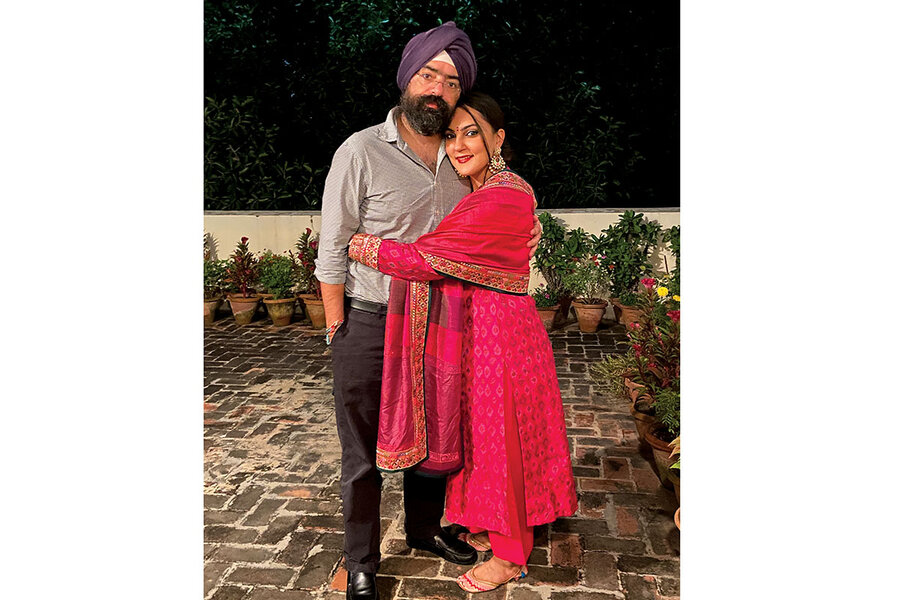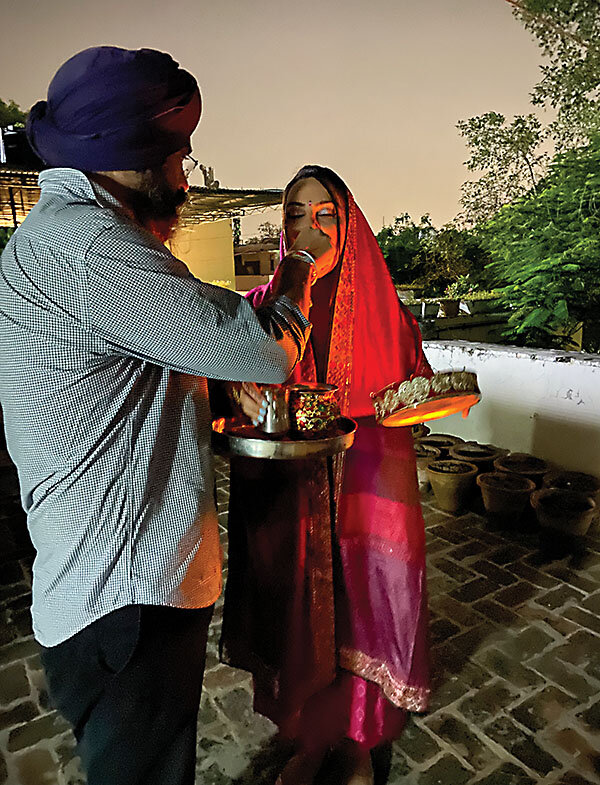Outdated? Patriarchal? Why I still celebrate the Hindu festival of love.
Loading...
I watched Bollywood’s longest running film, “Dilwale Dulhania Le Jayenge,” or DDLJ as it’s colloquially known, at the very impressionable age of 8. Much like Disney movies were for my Western counterparts, DDLJ was the ultimate romantic fantasy catering to my steeped-in-tradition Indian upbringing. One particular scene that appealed to me and my peers was the depiction of Karwa Chauth, a fast kept by women for their husbands or fiancés so they may live a long and healthy life. In the film, as the female protagonist learns that her beau also kept the fast for her, an entire generation of future wives collectively sighed and swore to continue this unique, if archaic, tradition for the sake of their true love.
The festival of Karwa Chauth is celebrated every year in the month of Kartik (which usually falls in October to November) in the Hindu lunar calendar, on the fourth (or chauth) day of the waning cycle of the moon. Married women, especially in northern India, abstain from eating food and drinking water from sunrise to moonrise and perform ritual prayers, sacrificing their comfort for the safety and longevity of their husbands’ lives.
It is customary for a fasting woman to view the moon through a sieve before viewing her husband’s face through it. Once she has received the blessings of the moon in this manner, her husband feeds her from the ritual offerings to break the fast.
Why We Wrote This
A story focused onHonoring traditions can offer meaningful connections to our past. In a time of social upheaval, our writer finds deep grounding in celebrating an ancient Hindu festival of love.
This year, as I complete a decade of being happily married, I find myself reflecting on the festival and why I continue to celebrate it. My husband and I are practicing Sikhs, and our faith encourages us to shun strict rituals mandated by the Hindu religion. The only exception to this rule is Karwa Chauth, which I have always followed, and in a rare move for an Indian man, so has my husband.
Unlike most practicing Hindus who fill the day with numerous prayers and ceremonies, we have a relatively quiet and private celebration for each other. I get henna applied on my hands, and my mother gifts me a new outfit to wear each year in traditional bridal colors such as pink, red, or orange. We break our fast at moonrise, and then enjoy a romantic dinner for two at a restaurant.
I keep the fast, influenced largely by the stoic beauty of the older women I observed in my younger years, as well as the portrayal of this festival in Bollywood films as a celebration of love. My husband’s grandmother, whom he loved like his own mother, followed the tradition throughout her married life. Sadly, she died the year after we got married, just before I was due to keep my first Karwa Chauth fast. So now we keep the fast in her memory.
Today, I celebrate the ancient holiday against a changing social landscape. Divorces were a largely uncommon phenomenon in Indian society until fairly recently, because of both the social stigma attached to them and the deeply ingrained “stick-to-it-iveness” of arranged marriages. Festivals like Karwa Chauth, which is based on the highly romanticized notion of “love conquers death,” only served to strengthen the belief that marriages must last, whether one is happy in them or not.
In the last couple of decades, however, the narrative has slowly changed, especially in urban areas. As women become more educated and financially independent, they are beginning to make their own life decisions. Men living in joint-family households under the weight of the expectations of their parents are also beginning to assert themselves. Hence, divorce rates are rising, and festivals like Karwa Chauth are viewed as patriarchal, outdated, and unfair to women.
Last year, when I posted photos of my Karwa Chauth celebration on social media, I received a lot of criticism. One woman in her late 30s called me out because “starving yourself for someone else is as regressive as it gets.” Another woman shared my photo on her page spurred by the romance she observed in the situation, only to be harshly confronted for endorsing this patriarchal tradition.
Perhaps subconsciously then, the reason I continue to keep the fast is that I believe practices like Karwa Chauth can and do have a place in modern relationships. (Of course, keeping the fast is my personal choice, and in its true spirit, it must be a personal choice for anyone who keeps it.)
It’s hard to justify the logic of depriving myself for a day to prolong the life of my husband. Yet, there is such beauty in tradition and in the idea of expressing my love to the world – not just as a young person in the first flush of love, but also as a mature adult whose love has taken on many layers and meanings. That is the love that I believe needs to be celebrated with Karwa Chauth: a steadfast, all-encompassing feeling of belonging to one another.






